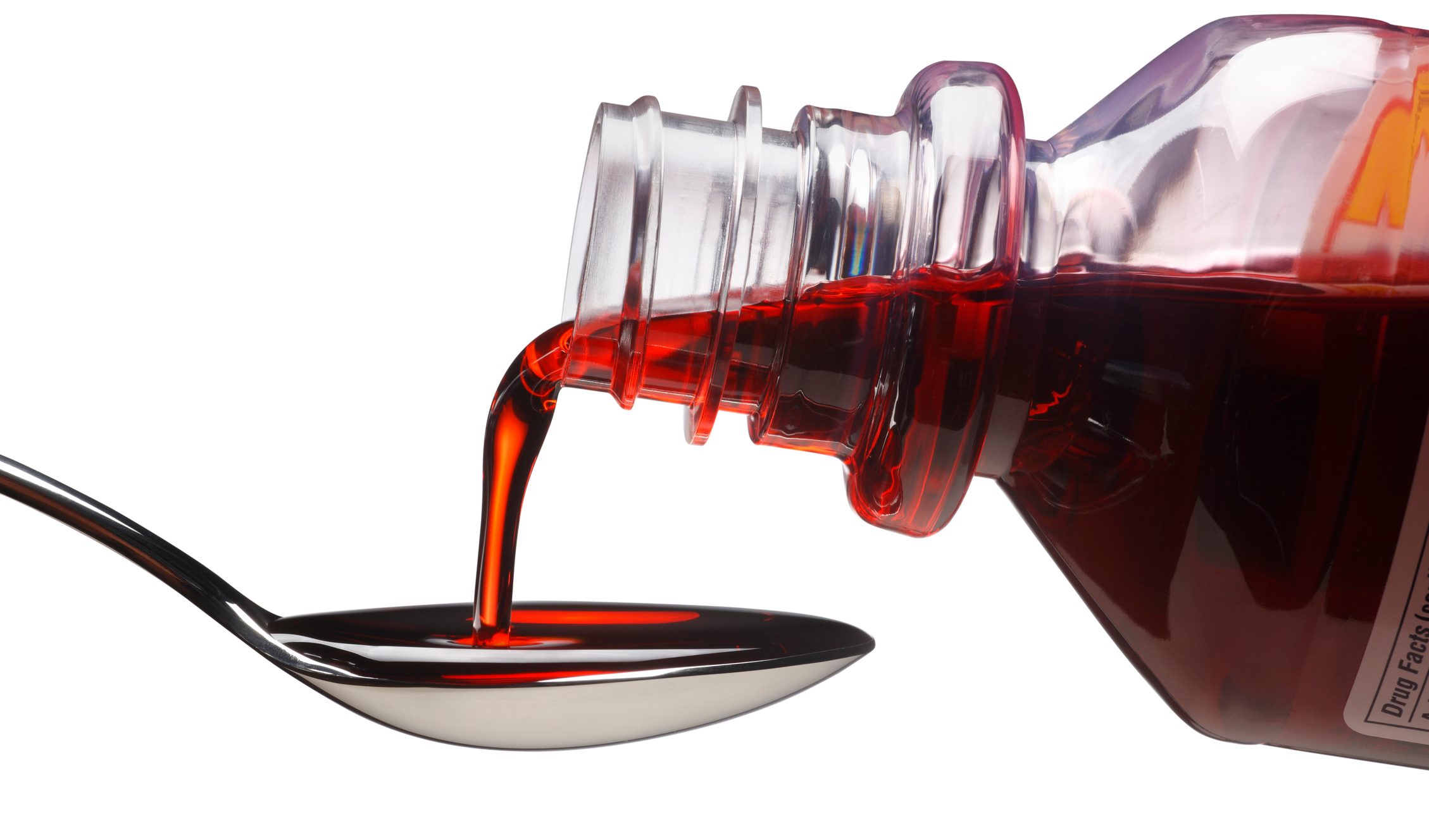While unfortunately, the same state's Department of Health reports their flu rates have increased 90% week-over-week.

More Than 4,000 Cough Medicines Have Been Recalled in One U.S. State

This winter, the USA has seen a massive surge of viral illnesses including Covid, RSV, and what even Fox News covered as the highest flu rates in 15 years, as shown via national data. In some of these cases, cough medications available by prescription only have been a course for remedy.
However, 4,080 bottles of one such cough syrup, Guaifenesin and Codeine Phosphate Oral Solution, were included in a January recall by the U.S. Food and Drug Administration (FDA). The medication was pulled from shelves in the state of Ohio just as respiratory illnesses have spiked across that state. In fact, according to the Ohio Department of Health, hospitalizations related to the flu are up 90% compared to just one week ago, while doctor visits related to the flu are up 29%, the state department data shows.
The Cleveland Clinic notes that these two medications are often used together: “Codeine and guaifenesin are combined in some prescription medications to suppress your cough and break up mucus.” On its own, codeine phosphate oral solution comes with important cautions, explains the FDA, because it’s one of the naturally occurring alkaloids of opium derived from the opium poppy and therefore “is classified pharmacologically as a narcotic analgesic.” Meanwhile, guaifenesin helps to clear chest congestion when you have a cold or the flu by thinning the mucus or phlegm in the lungs.
Prompting the voluntary recall was the discovery of “superpotent” levels of the preservative sodium benzoate. Sodium benzoate—a tasteless, odorless salt of benzoic acid that is often used in food, drugs, and cosmetics to prevent the growth of bacteria, yeast, and mold—is also included in the formulation. However, its inclusion in medicinal products hinges on its low dosage, meaning “superpotency” could cause adverse effects. Studies have linked the preservative to chronic inflammation, oxidative stress, allergic reactions, and more.
The FDA issued an update on February 4, designating this a Class III recall which they define as “a situation in which use of or exposure to a violative product is not likely to cause adverse health consequences.”
Consumers can identify the recalled medication by looking for the following details on the product’s label:
- Recalling Firm: PAI Holdings, LLC (doing business as Pharmaceutical Associates Inc.)
- National Drug Code (NDC): 0121-0775-16
- Lot Number: 4B07
- Expiration Date: 2026-OCT-31
- Dosage: 100 mg/10 mg per 5 mL, 16 fl oz (473 ml) bottles
If you have the affected lot in your possession, contact your medical doctor or pharmacy to request an alternative prescription.
For daily wellness updates, subscribe to The Healthy by Reader’s Digest newsletter and follow The Healthy on Facebook and Instagram. Keep reading:
